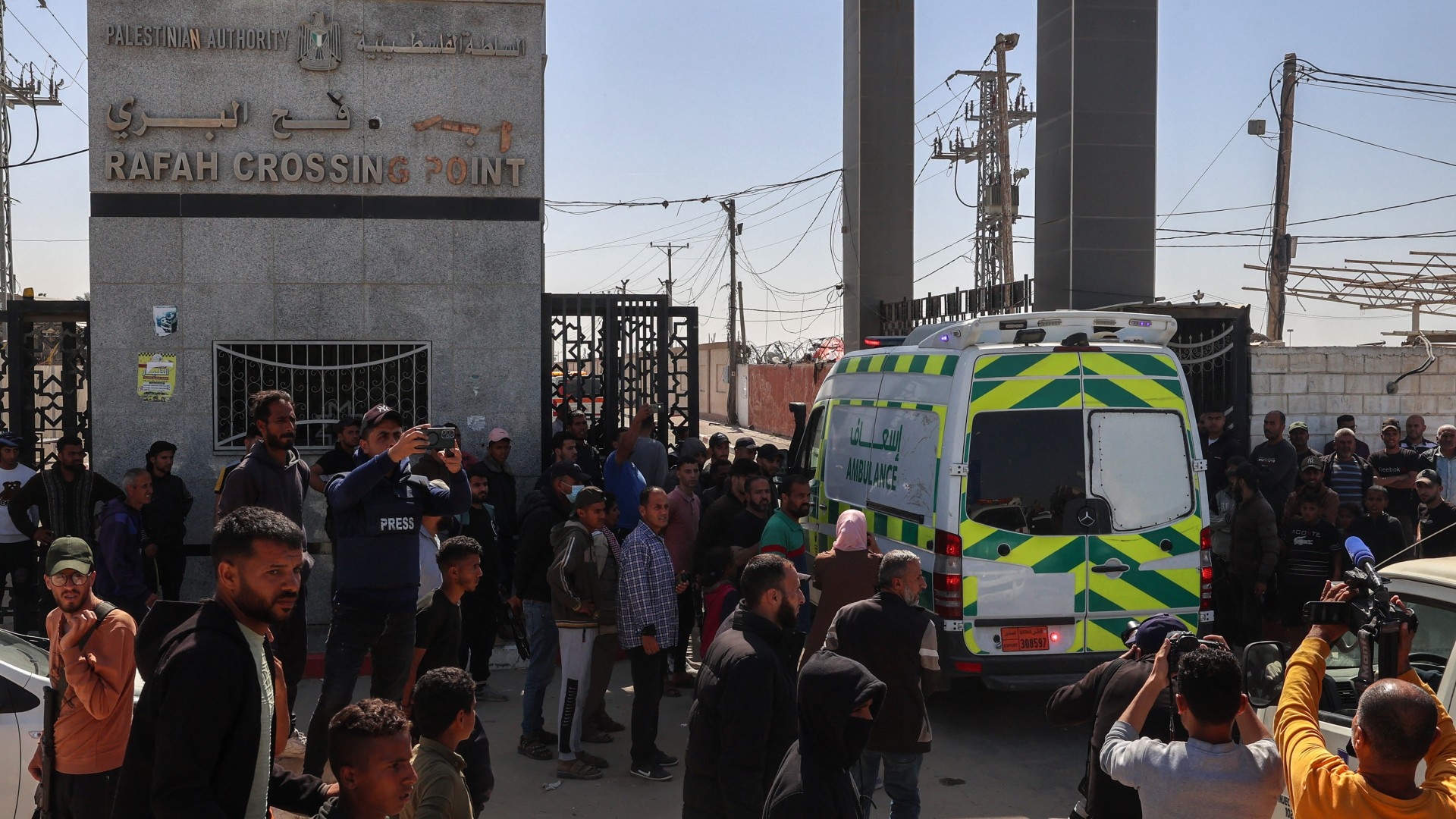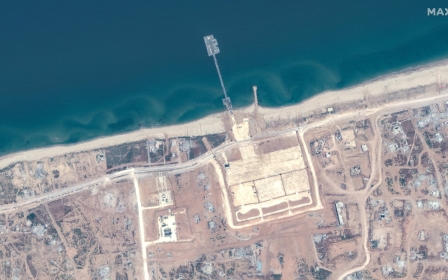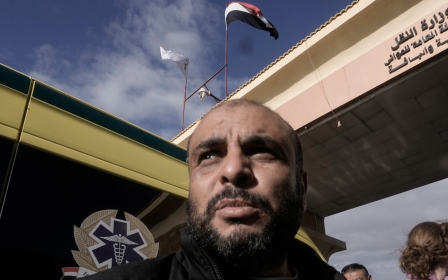US seeking to revive EU group’s role in monitoring Rafah crossing: Report

A European Union border assistance mission is under consideration to be put in charge of administering the Rafah crossing, according to a Politico report citing senior Biden administration officials.
The European Union border assistance mission to the Rafah crossing point, EUBAM Rafah, in short, has reportedly been in talks with US officials to take over the administration of the Rafah crossing, which has been closed since Israel invaded Rafah on 7 May.
"EUBAM Rafah is mandated to provide a Third-Party Presence at the Rafah Crossing Point (RCP). In its current stand-by mode, EUBAM Rafah supports enhanced capacity of Palestinian Authority border agencies," its mission statement reads.
EUBAM Rafah was previously in charge of monitoring the crossing from 2005 to June 2007, when it announced a temporary suspension of operations after Egypt closed the crossing following Hamas's takeover of the Gaza Strip.
The US proposition of reinstalling EUBAM Rafah comes amid an ongoing impasse between Egyptian and Israeli officials on who should be put in charge.
New MEE newsletter: Jerusalem Dispatch
Sign up to get the latest insights and analysis on Israel-Palestine, alongside Turkey Unpacked and other MEE newsletters
While Egyptian officials have reportedly said that Rafah should fall back into the hands of Palestinians from Gaza, Israel says that members of Hamas have previously manned the crossing and a new arrangement should be put in place.
During the current war on Gaza, the Israeli military seized control of the Palestinian side of the crossing, which has been a key entry point for aid and the only exit for Palestinians to flee since the start of the war in October. No aid shipments have entered Gaza through the Rafah crossing for over two weeks, significantly impeding much-needed humanitarian assistance from reaching people in the enclave.
In a report from January this year, EUBAM Rafah head of mission Nataliya Apostolova said she continues to "discuss possibilities of engagement for now and the ‘day after’", when Israel will have ceased its bombardment of Gaza.
The EU border assistance mission didn’t respond to a request to comment by the time of publication.
Blame game
US Secretary of State Antony Blinken on Wednesday blamed Egypt twice in one day for failing to ensure that aid is moving into Gaza through the crossing.
“We do strongly urge our Egyptian partners to do everything that they can on their end of things to make sure that assistance is flowing,” Blinken said at a hearing of the House Foreign Affairs Committee on Wednesday.
Egyptian Foreign Minister Sameh Shoukry told reporters on Monday that Israel's "military presence on the outskirts of the Rafah crossing and military operations put aid convoys and truck drivers in danger".
Cairo has been a key mediator between Israel and the Palestinians in the current war on Gaza, and has maintained peaceful relations with Israel over the past 45 years, since Egyptian President Anwar Sadat and Israeli Prime Minister Menachem Begin signed the Camp David Accords in 1978.
Israel's military invasion of Rafah marked a breach of bilateral agreements with Egypt, which previously warned Israel of the danger of a Rafah invasion, and has led to speculations about an end to this period of peaceful relations.
In an interview with American news network CNBC, Netanyahu on Wednesday claimed that Cairo was holding the people of Gaza “hostage” by refusing to work with Israel on an opening of the crossing.
Egypt, on Wednesday, threatened to pull out from negotiations because of "attempted doubts over its role".
Middle East Eye delivers independent and unrivalled coverage and analysis of the Middle East, North Africa and beyond. To learn more about republishing this content and the associated fees, please fill out this form. More about MEE can be found here.




